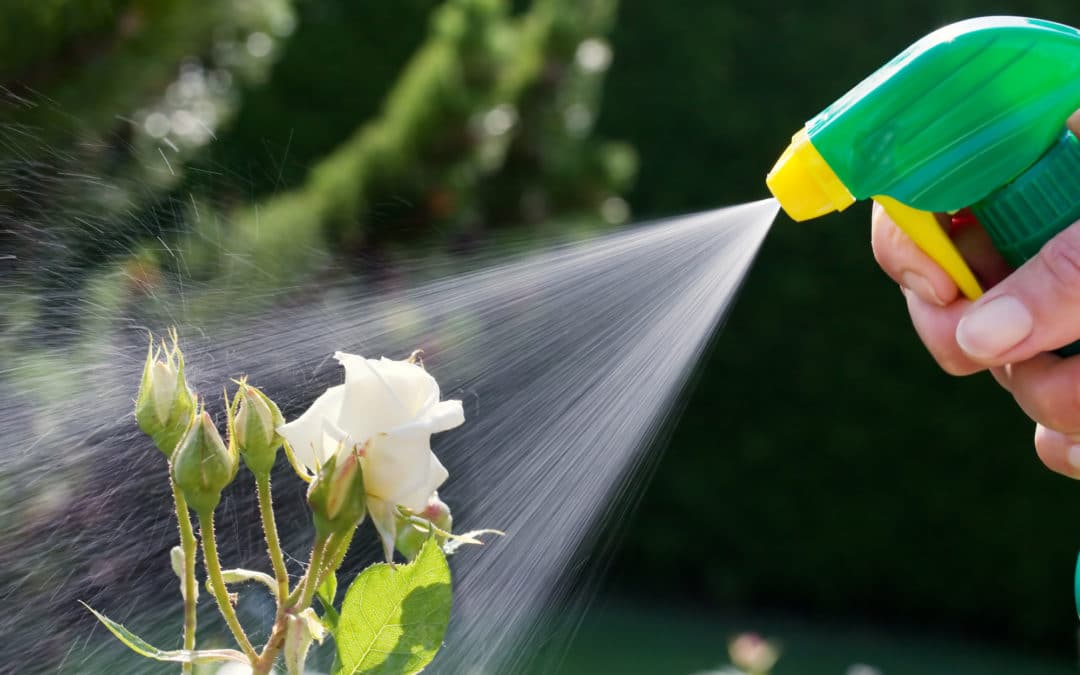When it comes to using a pesticide for flowering plants, sometimes the cure really is worse than the disease. Improper use of chemical pesticides in home gardens often results in not only a failure to get rid of pests but also sick or dead flowering plants. Learn to avoid these killer pesticide mistakes and help protect your garden.
3 Killer Pesticide For Flowering Plants Mistakes to Avoid
1. Failure to Use the Correct Pesticide for the Job
When inexperienced gardeners attempt to treat a pest infestation, often they only wind up making things worse. Why? Because they did not use the proper pesticide for the situation. Many home gardeners never bother to identify the pests they want to control or make a wrong identification, resulting in using the wrong product. Worse yet is when homeowners use the open, half-used container of pesticide they find in the back of their garage which they can’t even remember buying.
When choosing the right pesticide to eliminate your problem, you need to know which pest you are trying to control, the growth stage of the host plants, the species of the host plant and the severity of the infestation.
2. Forgetting to Read the Instructions
Incorrectly using a pesticide can cause a variety of problems such as failure to stop an infestation, damaging plants, and even creating health risks to the user and others. These issues are avoidable when gardeners spend a few minutes to read the label of a pesticide and learn how to use it the product safely and effectively. A home gardener should always re-read a product’s label each time she uses it to refresh her memory.
When you read a pesticide’s label look for information about which types of pests the product treats, how and where you can apply it; how much of the pesticide to use per application, when and how often the product should be used, any other possible dangers the pesticide presents to you or your pets, and how to treat an accidental exposure to the product. Be extra aware of any signal words you see on the label. Signal words appear in all capital letters and include: POISON, DANGER, WARNING, and CAUTION. Before working with pesticides, memorize or write down the number for the National Poison Control Hotline (1-800-222-1222), and call it immediate if you become exposed.
3. Using Harsh Chemical Pesticides
There is no denying that all pesticides can be harmful, but some types of pesticides are more hazardous than others. Gardeners should always try to use the least hazardous pesticide which will get the job done. Unfortunately, the employees of many large garden supply stores encourage novice home gardeners to purchase and use harsh chemical pesticides by assuring them these products will take care of the customers’ problems. The result of combining harsh chemical pesticides with an application by inexperienced gardeners typically results in an over-treated area and dead or sick plants.
As an alternative to harsh chemical pesticides, more gardeners these days are finding success using natural pesticides for flowers. Natural pesticides have the advantage of being eco-friendly and safer for both the plants and the gardener, all while still effectively deterring garden pests. There are many different varieties of natural pesticides for flowers such as insecticidal soap, Neem oil, Rotenone, and Diatomaceous earth.
Do you need help figuring out the best way to eliminate the pests from your yard? Green Acres Landscape has been helping residents and businesses in Salem, Oregon since 1992 with all of their landscape needs. Whether you simply need lawn care or want to create a one-of-a-kind outdoor area, Green Acres Landscape can help. Call 503-399-8066 to speak with a landscaping expert about your residential or commercial landscaping needs, or book an appointment online.

